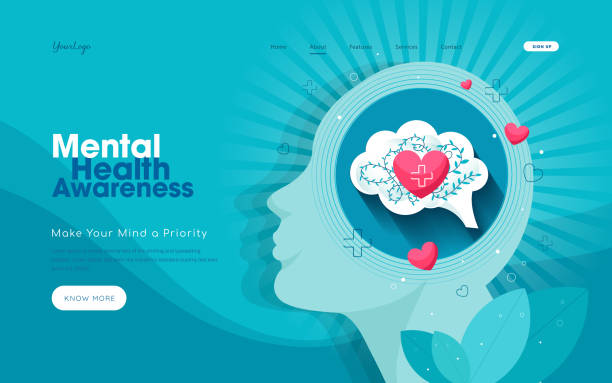What is Mental health?
What is Mental health?, it is an essential part of everyone’s life. It can help you feel happier and more satisfied with your life and give you the resilience to cope with difficult times. You might know someone who has struggled with mental health issues, or perhaps you have worked yourself. No matter where it comes from or how long it lasts, it can significantly impact your life. If you are wondering what this term means and why it is essential for you and those around you, read for some answers. This article will introduce this topic and its many aspects so that you can understand what it means for you and others, support people going through a difficult time, and keep yourself healthy if that isn’t the case.
What is mental health?
There is no exact definition for “mental health.” Mental health is how you feel, whether low or high, on any given day. It is about managing your emotions, coping well with stress, and being kind and supportive to yourself and others. Mental health is about recognizing feelings, learning to manage them, and seeking support. It is about living as actively as possible in your body and the world.
Mental Health Defined
Health can be seen as your state of complete physical, and social well-being. Mental health is an essential part of overall health, and the concept of “mental health” includes aspects of cognition (thinking, feeling, and behavior), behavior (actions), and emotional and social functioning. Mental health is essential to human functioning, and the ability to function well and feel positive emotions is necessary for daily life. Mental health disorders are conditions that can disrupt this sense of well-being. A disorder is a persistent pattern of abnormal behavior, cognitions, or emotions that affects a person’s daily functioning and causes distress. Mental health disorders can affect anyone, but they are more common in young people and the elderly. They include anxiety disorders (such as generalized anxiety disorder and social anxiety disorder), mood disorders (such as major depressive disorder and bipolar disorder), substance use disorders (such as alcohol use disorder and drug use disorder), and eating disorders (such as anorexia nervosa and bulimia nervosa).
Read More: Health Blog for Your Local Community
Examples of Mental Health
Feeling nervous about a big exam or presentation at work but knowing you can do well if you relax, take it easy, and don’t stress out too much is an example of how health works. Another example is feeling sad when a close friend breaks up with their partner. Wishing you could help them or comfort them is an indication of excellent mental health. Feeling overwhelmed by work, finances, family responsibilities, or other responsibilities but finding ways to manage and do what needs to be done is an indicator of good mental health.
Signs and symptoms of mental health disorders
People with mental disorders often experience sure signs and symptoms, such as changes in mood, behavior, or thinking, that can help someone recognize a health problem or indicate when care is needed. Common signs of a health problem include Mood changes: Feeling anxious or irritable or experiencing frequent changes in your mood is a sign that your mood might be out of whack. Behavior changes: If you are avoiding social situations or being irritable with family and friends, or if you are engaging in risky behaviors, you may be experiencing a health problem. Changes in thoughts: Thoughts can significantly indicate a health problem. For example, if you are having thoughts of suicide or hurting yourself, you should get help right away.
Stigma and discrimination against people with health issues
Stigma and discrimination against people with mental health issues is not OK. There should be no social, professional, or legal repercussions for your ethnicity, sexual orientation, or mental health. Stigma and discrimination can be harmful for many reasons, including making people less likely to get help, which can lead to a drop in overall mental health. Stigma and discrimination also contribute to a lack of understanding about mental health and an increased risk of misdiagnosis, which can be dangerous for individuals and society. Stigma and discrimination can happen in many ways, from the way people speak about health issues to the way laws are structured. For example, the way health is often treated as less severe than physical health is a form of stigma and discrimination. Rules that make it more challenging to receive disability benefits because of mental health issues can be discriminatory. Understanding mental health and its classification as a medical condition rather than a “just a bad day” type of thing is an essential step to ending stigma and discrimination.
Ways to Help Someone With a Mental Health Issue
If you have a friend or family member who seems to be struggling, consider the following suggestions to help them: Diagnose: If you are unsure what is causing someone’s symptoms, there is a better chance of helping them if you know what they are experiencing. This can be done through a health professional. : If you are unsure what is causing someone’s symptoms, there is a better chance of helping them if you know what they are experiencing. This can be done through a health professional. Listen: Remember that everyone has something to share and someone to listen to. : Remember that everyone has something to share and someone to listen to. Accept: Sometimes, people cannot handle change and must be reminded that it is OK to be upset and want help. : Sometimes, people cannot drive change and must be reminded that it is OK to be upset and want help. Help find appropriate support: If a friend or family member is struggling with a mental health issue, try to find ways to help them get the support they need. You can do this by suggesting support groups or health professionals and supporting them financially. : If a friend or family member is struggling with a health issue, try to find ways to help them get the support they need. You can do this by suggesting support groups or health professionals and supporting them financially. Encourage open communication: health problems can be exacerbated when people feel embarrassed or afraid to talk about them. Talk openly and honestly with your friends and family members about their feelings and needs.
Conclusion
Good mental health is essential for everyone. It can help you feel happier and more satisfied with your life and give you the resilience to cope with difficult times. health is about recognizing feelings, learning to manage them, and seeking support. It is about living as actively as possible in your body and the world. Taking care of yourself and seeking help when needed is essential, but there is always time to do so. Healthy health will help you live a whole and happy life. It will allow you to fully participate in your family, work, social, and academic lives. Healthy health will let you be confident in yourself, strong and resilient when faced with challenges, and kind to others. There is no single cause for health issues. It is essential to understand that health issues are caused by a combination of things, including things that happen to you, things that happen in your life, and things that you do. You can help prevent health issues by regular physical and emotional checkups, eating healthy food, getting enough sleep, and being active.









